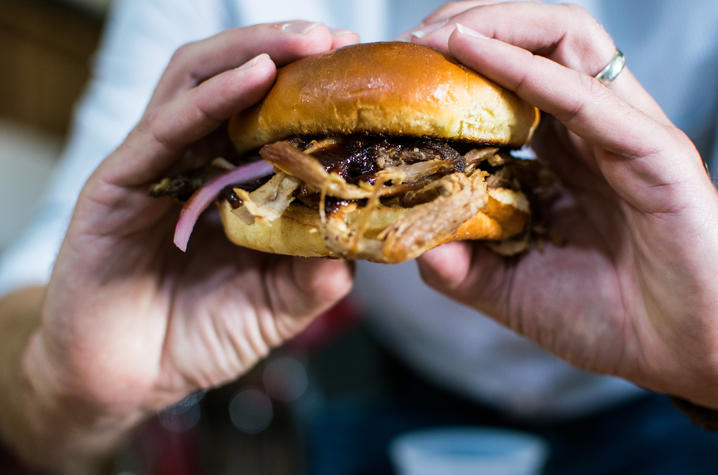UK Dining Again Exceeds Benchmarks for Local Food Purchases

LEXINGTON, Ky. (Oct. 1, 2018) – The University of Kentucky today released the UK Dining Sourcing Report for Fiscal Year 2018, showing that local purchases exceeded both the Kentucky Farm Impact benchmark and the overall Kentucky Farm and Food Business Impact (KYFFBI) benchmark set for the period from July 1, 2017 through June 30, 2018.
Increasing levels of local food sourcing and support for the state’s businesses and farm economy were critical elements of the dining partnership and contractual relationship forged between UK and Aramark.
The partnership has led to millions of dollars in investments on UK’s campus as well as a strategic emphasis on growing support for the state’s farm economy.
Key Performance Indicators (KPIs) called for UK Dining to spend at least $672,000 in Kentucky Farm Impact purchases during the 12-month period. The actual expenditures came in at $1,045,600, exceeding the contractually mandated target by $373,000.
Food Business Impact purchases totaled $707,000 for the fiscal year. When added to the local farm impact purchases, UK Dining’s combined KYFFBI impact totaled about $1,752,000, again exceeding the mandated target of just over $1,730,000.
“We are very pleased with the progress we are making as a result of this partnership to support Kentucky’s local food economy and farm families,” said UK Executive Vice President for Finance and Administration Eric N. Monday. “The UK community recognizes the social, environmental, and economic values the Commonwealth receives by supporting home-grown products from Kentucky farms and Kentucky entrepreneurs.
"The continued increase each year in those purchases resulting from our partnership underscores the shared commitment UK and Aramark have to the Commonwealth and the state’s agricultural economy.”
UK’s local food procurement program emphasizes two kinds of economic impact: farm impact and business impact. Farm impact purchases have at least some ingredients that can be traced back directly to a Kentucky farm. Business impact purchases do not have any Kentucky grown or raised ingredients but are produced by businesses owned by Kentucky entrepreneurs or manufactured in facilities located within Kentucky.
“Three major factors contributed to the continued growth of UK Dining’s local food procurement efforts,” said Lilian Brislen, executive director of The Food Connection, a College of Agriculture, Food and Environment institute. “We have created robust ways to track our progress through the implementation of monthly purchasing reports; the opening of Champions Kitchen, a residential dining facility in the new Gatton Student Center, created even more opportunities for local food purchasing; and the strategic integration of new secondary distributors specializing in farm-impact products helped continue our expansion.”
The Food Connection was established and funded by Aramark as part of its partnership with the university to create UK Dining.
Products of note include Kentucky farm-impact hamburger patties produced specifically for UK Dining, grass-fed beef, pork, and pastured chicken sourced from Marksbury Farm, organic shell eggs from Stone Fall Farm, and Crank & Boom Ice Cream, which is made primarily with JD Country Milk.
“We have made progress each year in our commitment to Kentucky’s local food economy as a result of this partnership,” said Melody Flowers, executive director for strategic analysis and policy at UK. “We are closely monitoring and tracking that progress as a way of continually strengthening and expanding our commitment to our students, faculty and staff and to the Commonwealth we serve, which depends on a vibrant agricultural economy.”




